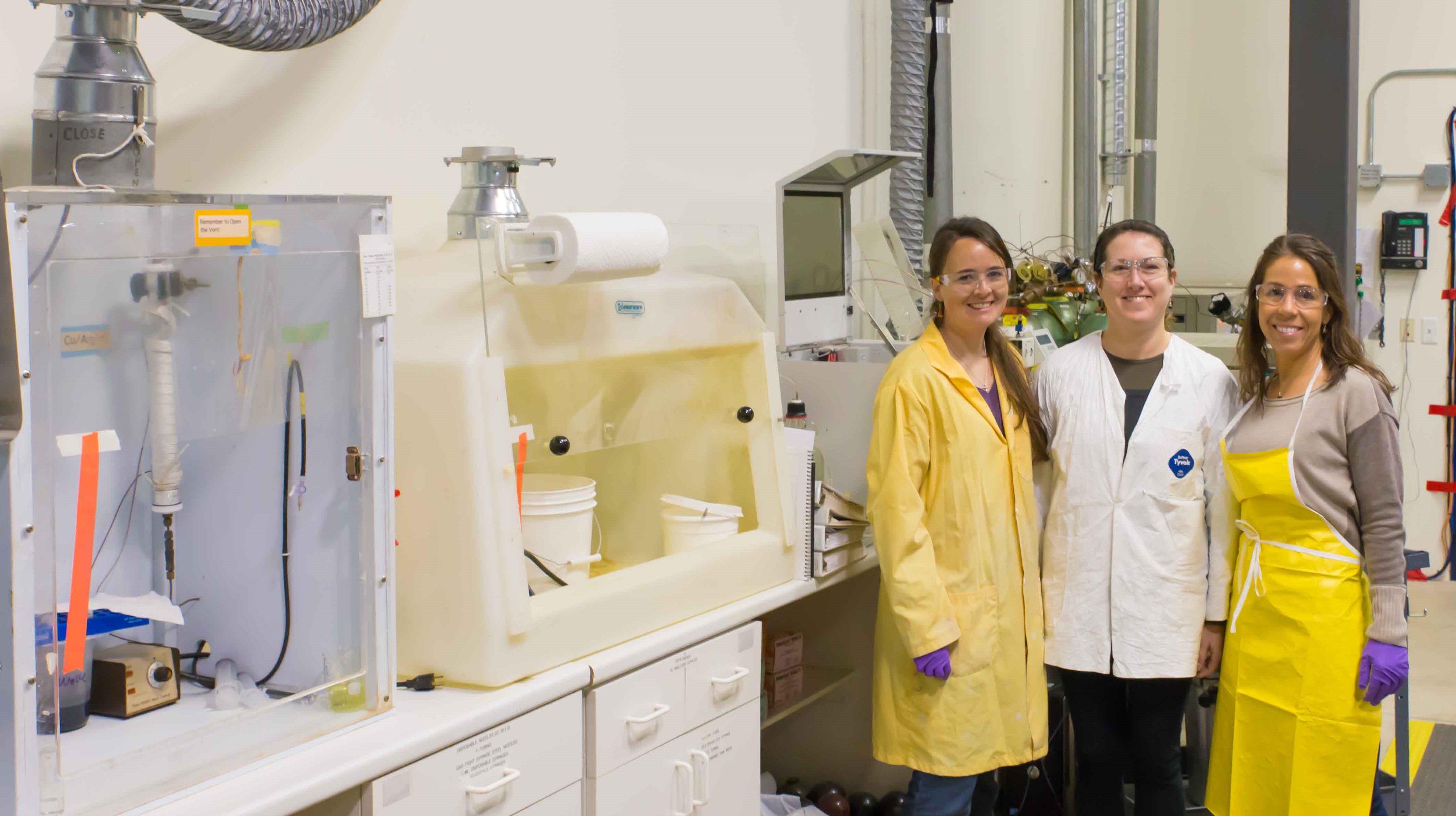
The difference between the success or failure of a remedial application is often a result of understanding the interaction of the site specific geochemistry and biology with the proposed technology. XDD’s more than 16 years of experience in conducting treatability testing for industry and governmental institutions allows us to quickly and cost-effectively select the technology most certain to achieve the remedial goals based on site and client specific requirements. XDD has been selected to conduct specific treatability studies for product comparisons and evaluate the effects of in situ chemical oxidation on metals mobilization for the Strategic Environmental Research and Development Program (SERDP).
Why Conduct a Treatability Test?
- Increased Certainty – The ability to identify undesirable outcomes and avoid technology failures prior to design and full-scale implementation
- Technology Selection – The flexibility to effectively evaluate multiple applicable technologies simultaneously
- Determine Reagent Quantities – An understanding of the type and quantity of reagent required to meet your site objectives. Under-dosing can result in additional unanticipated applications, while over-dosing is the equivalent to pumping capital down a well
- Cost Estimation – As reagent costs can make up a significant component of the full scale application costs, an understanding of the applicable reagents and costs can refine/confirm budget estimates
In 2013, XDD acquired Bioremediation Consulting Inc. (BCI) of Watertown, MA and relocated their facilities into XDD’s NH offices. BCI specialized in bioremediation microcosm and treatability studies, laboratory based bioremediation consulting, and culture development for bioaugmentation. BCI brought to XDD an additional 20 + years expertise in treatability testing having conducted 150 tests on soils and groundwater’s from 100 different sites across the United States.
In 2016, XDD obtained certification from the United States Department of Agriculture (USDA) to import international soils for treatability testing at remediation projects. Groundwater does not require certification for import. XDD has completed treatability testing for soil and groundwater remediation projects from such diverse locations as South Africa, France, and Puerto Rico.
Select one of the options below for more information about different types of services XDD Environmental’s laboratory offerings:
Email XDD at lcrawford@xdd-llc.com with inquiries about conducting a treatability test. Additionally, a selection of our case studies can be found here.
Treatability Studies
XDD performs treatability testing and microcosm studies to evaluate the site specific feasibility and to develop field-scale design parameters for all common in situ remediation technologies:
- In Situ Chemical Oxidation:
- Catalyzed Hydrogen Peroxide
- Activated Persulfate
- Permanganate
- In Situ Chemical Reduction:
- Zero Valent Iron (ZVI)
- Bi-Metallic Particles
- Metal Sulfides
- In Situ Bioremediation
- Aerobic
- Anaerobic
- Biostimulation
- Bioaugmentation
- In Situ Metals Stabilization
- pH adjustment
- metals sorption
- metals precipitation
- metals co-precipitation
-
Specialty Services
XDD Environmental will customize our treatability services to meet you site-specific needs. Our most recent approaches include:
- Thermal enhanced soil vapor extraction
- Thermally enhanced bioremediation
In-House Analytical Capabilities
- Natural attenuation parameters
- Dissolved gases such as methane, ethene, and ethane by gas chromatography (GC)
- Volatile chlorinated compounds by GC
- Alcohols, glycols, and water soluble ethers by GC
- Organic acids such as formate, lactate, and acetate by capillary ion electrophoresis and by ion chromatography
- Molecular hydrogen by reduction gas analysis
- Anions such as nitrate, nitrite, phosphate, chloride and sulfate

